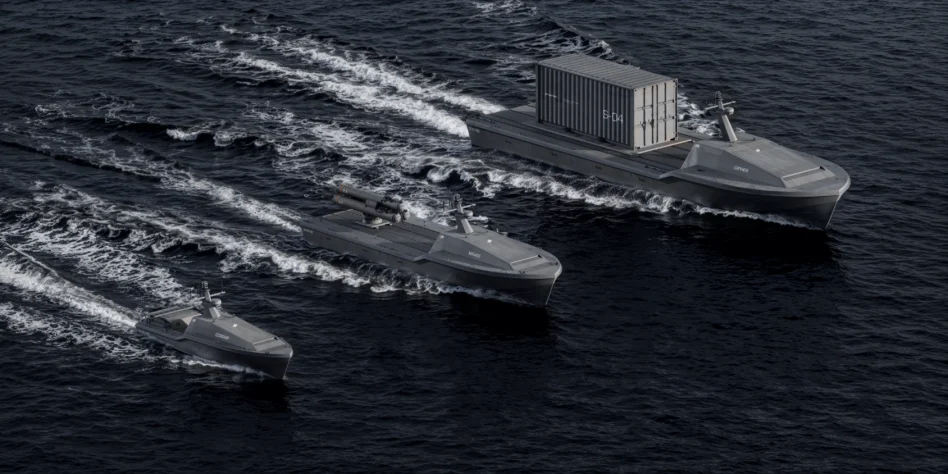If you’re going to make friends as an autonomy company, it’s probably pretty helpful if one of those friends is one of the most powerful and valuable chip companies in the world.
Yesterday, maritime autonomy darling Saronic announced that it’s officially inked a “strategic collaboration” with the chipmaking giant NVIDIA (which has a $4.43T market cap as of this morning, fun fact) to “advance the frontier of intelligent, resilient decision-making at sea.”
Details on the deal remain murky, but the two companies say they will build on their “existing relationship and collaborate on joint research and development efforts to advance state-of-the-art technologies for maritime robotics and autonomy.” Sounds like we could get some high-end compute at sea. Sick.
“By combining Saronic’s deep expertise in maritime autonomy and next-generation shipbuilding with NVIDIA’s world-class AI and computing capabilities, we’re simultaneously developing the most capable and resilient maritime systems in the world and building the industrial engine to produce them at scale and pace,” said Dino Mavrookas, Saronic Co-founder and CEO, said in a statement.
The announcement comes ahead of NVIDIA’s blowout GTC conference in DC next week.
Fish and chips: In case you’ve been living under a rock for the past few years, a bit of background on NVIDIA. The company was founded way, way back in 1993 by Jensen Huang, Chris Malachowsky, and Curtis Priem, who then made a name for themselves building high end graphics processing units (GPUs), first for gaming and, more recently, for AI.
The company has gone absolutely bonkers in recent years with the rise of AI—NVIDIA’s ultra-powerful chips power AI training and inference at companies like OpenAI, Meta, Google, and Amazon, and can run large-language models, simulations, and digital-twin environments. That’s all the fun stuff that makes AI, well, good.
This team up with Saronic is certainly not NVIDIA’s first defense rodeo. The company has been an in-demand player for way out there defense applications since way before anyone even uttered the word “drone-boat.”
- NVIDIA signed a deal with DARPA all the way back in 2012 to research low-power, high-efficiency embedded processor architectures.
- The company’s Jetson modules have brought super-powerful AI compute to small, ruggedized systems—including robotics, autonomous vehicles, and drones.
- NVIDIA has DoD-adjacent partnerships all over the place—beyond DARPA, they’ve teamed up with the Naval Postgraduate School, and work with Northrop Grumman, Lockheed Martin, and Curtiss-Wright, among many, many others.
Basically, if you need ultra-powerful compute in some way-out-there places, NVIDIA is your guy-slash-gal.
Plug it in: Saronic said in their statement that NVIDIA chips are already on their vessels and that the company uses “NVIDIA’s accelerated compute capabilities, AI models, and development tools across its simulation, software development, and autonomous platform operations.”
But this official partnership will mean the two companies will collab “on joint research and development efforts to advance state-of-the-art technologies for maritime robotics and autonomy”—as we’ve said before, the sea is a particular kind of beast when it comes to electronics and compute.
From the sounds of it, it’s looking like a lot of the collaboration between Saronic and NVIDIA will be on the manufacturing side of the house. Saronic opened up a new 80,000 sq ft facility in San Diego this week, and has promised to massively ramp up production of its USVs of all sizes (who remembers Port Alpha?)
Citing the SHIPS Act (name drop!), Saronic’s statement said that the two companies will “collaborate on modernizing U.S. shipbuilding for the era of autonomy and will explore the full spectrum of AI-enablement in shipbuilding.”
“Bringing together Saronic’s production, manufacturing, and shipbuilding expertise with NVIDIA’s virtual facility solutions, simulation capabilities, and AI-powered solutions could help accelerate the transformation of a critical legacy industry,” the company added.
Once again: huge (and we really do mean huge) if true. Everyone wants more ships, and fast.

